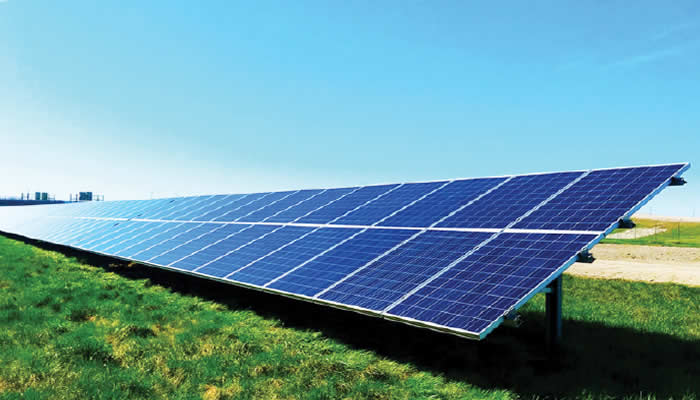The Federal Government has announced a major step in its renewable energy drive with the signing of a landmark agreement to establish a 1,000-megawatt solar photovoltaic panel manufacturing facility in Nigeria. The project is expected to strengthen local production, cut import dependency, and accelerate the nation’s energy transition.
The deal, signed on Wednesday at the Infrastructure Corporation of Nigeria (InfraCorp) office in Abuja, brings together three key partners — the Rural Electrification Agency, InfraCorp, and Dutch renewable energy company Solarge BV. Together, they have set up Solarge Nigeria Limited, a special-purpose vehicle to build and operate the facility.
According to details released after the signing, Solarge BV will hold the largest stake with 49 per cent ownership. InfraCorp and REA will control 26 per cent and 25 per cent, respectively. Officials explained that this balance of ownership reflects a public-private partnership model aimed at mobilising investment, enforcing accountability, and guaranteeing technology transfer.
The new factory aligns with the National Public Sector Solarisation Initiative and the Renewed Hope Infrastructure Development Fund — two government-led programmes designed to scale access to clean energy across public institutions while deepening Nigeria’s industrial base.
InfraCorp is expected to leverage its expertise in investment mobilisation, REA will provide policy leadership in rural electrification and solarisation, while Solarge BV will bring its advanced manufacturing technology and global experience.
The 1GW solar PV plant will be a state-of-the-art facility designed to achieve 50 per cent local content within its first three years of operation. Beyond energy supply, the project is expected to drive technology transfer, skills development, and thousands of direct and indirect jobs.
Under a binding offtake arrangement, the REA has committed to procuring at least 200 megawatts of solar modules annually over five years for use in NPSSI, RHIDF, and other government-backed electrification programmes.
Officials said this guaranteed offtake provides financial stability to the project while ensuring that locally manufactured panels are directly deployed in powering schools, hospitals, security posts, and other public facilities nationwide.
Speaking at the signing event, Tanimu Yakubu Kurfi, Director General of the Budget Office, described the project as an example of the innovation and collaboration being promoted under President Bola Tinubu’s Renewed Hope Agenda.
“This partnership exemplifies the type of innovation and collaboration that the Federal Government seeks to promote under the Renewed Hope Infrastructure Development Fund. It not only supports our fiscal sustainability goals but also deepens Nigeria’s industrial base and energy self-reliance,” he said.
The Managing Director of REA, Abba Aliyu, said the agency viewed the venture as more than an energy project. “Through this joint venture, we are not only creating access to clean energy but building the local capacity to manufacture it. This initiative aligns perfectly with the Renewed Hope Agenda and our mandate to electrify communities and institutions,” he stated.
For InfraCorp’s MD/CEO, Lazarus Angbazo, the project reflects a commitment to sovereignty in energy production. “Solarge Nigeria Limited represents a bold step toward local manufacturing and energy sovereignty. We’re proud to partner with REA and Solarge BV to build a resilient and sustainable energy future for Nigeria.”
On his part, Joost Brinkman, CEO of Solarge BV, expressed optimism. “We are excited to bring our technology and experience to this landmark initiative. Solarge Nigeria Ltd will set a new benchmark for solar manufacturing in Africa — built by Nigerians, for Nigerians.”
To ensure transparency and smooth operations, Solarge Nigeria Ltd will be overseen by a board of directors representing all shareholders, alongside an independent non-executive director. A dedicated project management office and offtake coordination desk will also be created to ensure execution, regulatory compliance, and alignment with public procurement standards.
The project’s journey began on August 7, 2025, with the signing of a memorandum of understanding between REA, the Budget Office of the Federation, InfraCorp, and the Ministry of Finance Incorporated. That MoU formally launched the NPSSI, a flagship programme aimed at replacing diesel-powered electricity in public institutions with solar energy.
The government said the initiative will directly address critical priorities, including reducing the public sector’s heavy diesel dependency, cutting carbon emissions, and ensuring that schools, hospitals, and government facilities run on clean, reliable energy.
The announcement also comes months after the Federal Government floated the idea of banning solar panel imports — a proposal heavily criticised by renewable energy operators who feared it would stifle competition. By creating a domestic manufacturing hub, officials now argue, the government is providing a sustainable alternative that both reduces reliance on imports and strengthens local industry.
Energy analysts say the plant could become Africa’s largest solar PV manufacturing hub, positioning Nigeria as a regional leader in renewable energy. By targeting 50 per cent local content, the project is expected to empower Nigerian engineers, technicians, and entrepreneurs to play a greater role in the renewable energy value chain.
Moreover, the guaranteed demand from government-led programmes could help stabilise the country’s power supply to critical institutions, reduce foreign exchange outflows tied to solar imports, and boost investor confidence in Nigeria’s industrialisation agenda.
As the government pushes forward with subsidy removal and energy reforms, the Solarge Nigeria project may prove to be a critical anchor in achieving both energy access and economic diversification goals.















